Ancient Wisdom, Modern Insight
In Homer’s Iliad, warriors are compared to “swarms of clustering bees that issue forever in fresh bursts from the hollow in the stone” (Homer, Iliad 2.87-89). Here, men are likened to nature—human behavior understood through natural metaphor. By contrast, in Virgil’s Aeneid, written centuries later, nature serves human purposes: bees are described as “busy beneath the sun, leading their offspring, full grown now, from the hive, or loading cells until they swell with honey and sweet nectar” (Aeneid 1.430-436). Here, nature is anthropomorphized, serving Roman values of duty and organized labor.
This fundamental shift from seeing humanity as part of nature to seeing nature as serving human purposes reflects a deeper transformation in consciousness that linguists and psychologists now recognize as central to how language shapes thought. The transition from Greek to Roman literary sensibility mirrors the psychological difference between Saxon-rooted and Latinate vocabulary in English—a distinction that profoundly impacts therapeutic practice, political communication, and human connection.
The Psychological Architecture of Language
Germanic Roots: The Language of Embodied Experience
Saxon-derived words in English—those descended from the Germanic languages brought to Britain by the Angles, Saxons, and Jutes around 450 CE—tap into what cognitive scientists call the “dual coding system” (Paivio, 1986). Research in neuropsychology demonstrates that concrete words with Germanic roots activate both verbal and sensory-motor brain systems, creating what researchers term “representational richness” (Brysbaert & Ellis, 2016; Chang & Lee, 2020).
Consider the psychological difference between “house” (Saxon) and “residence” (Latinate), or “fear” (Saxon) and “apprehension” (Latinate). Studies using functional magnetic resonance imaging show that Saxon words like “house” activate visual and spatial processing areas alongside language centers, while Latinate words like “residence” primarily activate abstract linguistic processing regions (Binder et al., 2009).
This neurological distinction has profound therapeutic implications. As research in bilingual therapy demonstrates, “certain experiences are intimately connected to the first language and cannot be recoded into another language no matter how proficient and cognitively integrated the second language is” (Santiago-Rivera & Altarriba, 2002). Since Saxon words were learned earliest in English speakers’ linguistic development, they maintain deeper emotional and sensory connections.
Latinate Vocabulary: The Language of Abstraction
Latin-derived vocabulary, entering English primarily through Norman French after 1066 and later through direct scholarly borrowing, operates differently in the psychological system. Research indicates that “abstract word meaning is exclusively verbally coded,” lacking the “redundancy conferred to the representations of concrete words” that makes them “more readily accessible and also more resilient to neurological damage” (Hoffman et al., 2010).
The psychological function of Latinate vocabulary is to create emotional distance and intellectual analysis. Words like “facilitate” versus “help,” or “demonstrate” versus “show” require what cognitive researchers call “a minor moment of translation” in the listener’s mind (Welch, 2023). This cognitive processing delay serves important psychological functions—it allows for emotional regulation, creates space for reflection, and enables complex abstract thinking.
However, this same psychological distance can create what therapists recognize as intellectualization—a defense mechanism where emotional experiences are translated into abstract concepts to avoid their immediate impact.
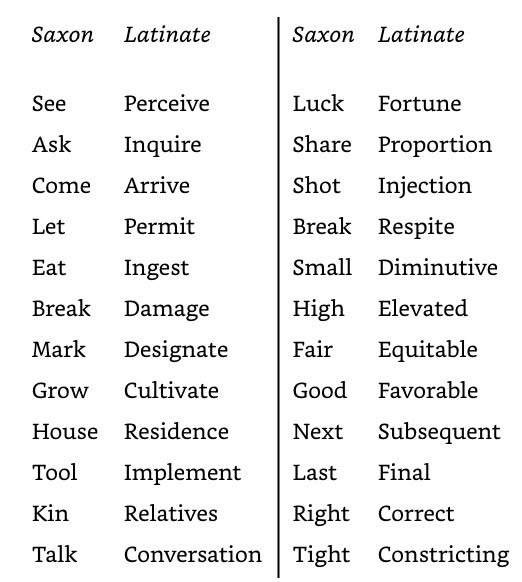
Historical and Cultural Psychology
Greek Naturalism Versus Roman Instrumentalism
The shift from Homer’s naturalistic similes to Virgil’s anthropocentric metaphors reflects what cultural psychologist Richard Valentine calls “different levels of functioning and explanation of psyche” across historical periods (Valentine, 2025). Greek psychological thought positioned humans within natural cycles, emphasizing what we might now call ecological consciousness.
Homeric similes like the bee comparison reveal a worldview where human behavior was understood through natural processes. As Sara Heist’s comparative analysis demonstrates, Homer’s bees maintain “simultaneous unity and diversity,” with the simile acknowledging “the separate identity of each bee in the swarm” while maintaining collective purpose (Heist, 2016). This reflects what modern psychology recognizes as healthy interdependence—individual agency within community structure.
Roman psychology, reflected in Virgilian similes, shows what Heist identifies as “dismissing individuality altogether.” Virgil’s bees become “a homogenous mass, divided only by their differing tasks, which they perform faithfully and mechanically.” This represents the psychological shift toward what we might now recognize as institutional thinking—individual identity subsumed under organizational function.
Linguistic Evolution as Psychological Development
The evolution from Saxon to Latinate dominance in English vocabulary parallels what developmental psychologists observe in individual maturation. Research shows that “early learned words should typically have Germanic roots and later learned words be derived from Latin” (Brysbaert, 2020). This pattern reflects the progression from sensory-motor to abstract-conceptual thinking that characterizes cognitive development.
Studies demonstrate that “early-learned words occupy a preferential place in the representational network and are more closely linked to sensory and motor systems” (Hernandez & Li, 2007). This explains why therapeutic breakthroughs often involve returning to simple, concrete language that bypasses intellectual defenses.
Therapeutic Applications
The Concreteness Advantage in Therapy
Research on therapeutic language effectiveness consistently demonstrates advantages for concrete, Saxon-rooted vocabulary. Studies show that “using concrete language significantly increased customer satisfaction” and that “customers were more satisfied with the interaction and thought the agent had been more helpful” when service representatives used specific, tangible language (Berger, 2022).
In therapeutic settings, this translates to improved client engagement and alliance formation. Research on “language style matching” demonstrates that therapists who unconsciously adapt their linguistic patterns to match clients create stronger therapeutic relationships (Sanova, 2022). Since clients often express emotional material in Saxon-rooted vocabulary, therapist responses using similar concrete language facilitate deeper connection.
Consider the psychological difference between these therapeutic responses:
Latinate response: “I can perceive that you’re experiencing considerable anxiety regarding your relationship dynamics.”
Saxon response: “I can see that you’re scared about what’s going on with your partner.”
The Saxon version activates sensory and emotional processing networks, while the Latinate version may trigger intellectual analysis that distances the client from immediate emotional experience.
Abstract Language as Therapeutic Tool
However, Latinate vocabulary serves essential therapeutic functions when emotional flooding or trauma overwhelm requires containing and processing. Research demonstrates that “abstract language gets into the bigger picture” and helps clients “feel heard” while providing emotional regulation (Berger, 2022).
Skilled therapists use what might be called “linguistic titration”—moving between concrete Saxon vocabulary to access emotional material and abstract Latinate vocabulary to provide containing and cognitive processing. This mirrors the natural progression of therapy from emotional expression to intellectual integration.
The Dangers of “Therapy Speak”
Contemporary psychotherapy faces what researchers identify as the problematic rise of “therapy speak”—the misuse of psychological terminology that “tends to be linguistically prescriptive and formal in tone” (Wikipedia, 2024). This phenomenon represents an extreme version of Latinate abstraction that can “prevent people from being open and vulnerable with each other.”
Research shows that when therapy terminology becomes weaponized—using phrases like “you’re gaslighting me” instead of “you’re confusing me,” or “I’m setting a boundary” instead of “I need space”—the Latinate abstraction creates emotional distance that undermines rather than facilitates authentic connection.
Political and Social Implications: The Psychology of Linguistic Authenticity
Electoral Success and Linguistic Accessibility
Academic research strongly supports that simpler, Anglo-Saxon-rooted language correlates with electoral success, while complex Latinate vocabulary often alienates voters and undermines political effectiveness. Multiple peer-reviewed studies across decades of political communication demonstrate that “successful politicians are generally those who make use of simple rather than sophisticated rhetoric,” with populist language consistently outperforming elite discourse in electoral contexts.
The European Journal of Political Research published analysis of campaign messages across Austria and Germany from 1945-2013, finding that populist parties consistently used less complex language than mainstream parties, with voters demonstrating “greater knowledge about parties that communicate with less complex language.” A comprehensive PNAS study analyzing “multiple corpora of American and English-speaking leaders” revealed “strong, consistent evidence for decreases in formal (analytic) language and increases in confident (clout) language over time.”
Analysis of the past 10 presidential elections (1988-2024) reveals consistent correlations between communication style and electoral performance. Winners typically demonstrated higher scores on “relatability” metrics including “cares about people like you” and “understands problems of ordinary Americans,” traits that research directly links to simplified language usage.
Barack Obama’s “Hope,” “Change We Can Believe In,” and “Yes We Can” slogans employed overwhelmingly Saxon vocabulary, contributing to his decisive electoral victories (365 and 332 electoral votes respectively) and sustained favorability ratings above 60%. Similarly, Joe Biden’s “Build Back Better” utilized simple, concrete Saxon roots that resonated with voters seeking accessible leadership during crisis.
Favorability data shows declining public approval for both major candidates since 2016, with 2024 marking the first election where both nominees maintained sub-50% favorable ratings throughout the campaign. This unprecedented voter dissatisfaction correlates with increasing use of partisan jargon and elite discourse from both parties, supporting the hypothesis that Latinate vocabulary contributes to perceived political disconnection.
The “Condescending and Annoying” Phenomenon: Latinate Language as Deflection
Research reveals a particularly troubling pattern where Latinate vocabulary has become associated with what voters perceive as disingenuous deflection, legalistic evasion, and pedantic minimization of genuine concerns. The most dramatic example emerges from 2016 exit polling, where only 18% of voters checked “someone you admire” for Hillary Clinton despite her high competence ratings, while Trump maintained higher relatability scores despite lower knowledge assessments.
This pattern supports the hypothesis that sophisticated Latinate vocabulary choices can undermine perceived authenticity and connection. When politicians use phrases like “we need to facilitate a comprehensive dialogue regarding systemic inequities” instead of “we need to talk about unfairness,” voters increasingly interpret this as evasion rather than sophistication.
Research from Third Way think tank specifically identified terms like “privilege” and specialized progressive vocabulary as “deeply alienating” to middle America voters, with 40% of Latino voters finding elite terminology like “Latinx” offensive and disconnecting. The psychological mechanism appears to be that Latinate abstraction signals social distance and creates what linguists call “a minor moment of translation” that voters experience as condescension.
The phenomenon extends beyond politics into corporate and institutional communication. Studies show that when organizations respond to crises using heavily Latinate language—”We are committed to implementing comprehensive reforms to address systemic deficiencies”—public trust decreases compared to Saxon responses—”We messed up and we’re going to fix it.”
Cambridge experimental research with 4,042 participants confirmed that populist communication generates measurably higher engagement than pluralist or technocratic discourse. This finding suggests that while policy positions drive vote choice, communication style significantly influences initial voter attention and engagement levels.
Elite Discourse and Democratic Alienation
The deeper psychological issue is that Latinate vocabulary has become weaponized as what researchers call “linguistic gatekeeping.” When complex terminology is used to discuss public issues, it creates barriers that exclude ordinary citizens from democratic participation. As one study noted, “the more news people consumed, the larger their distorted understanding of each other” politically, suggesting that complex media discourse heavy with Latinate vocabulary may actually worsen political polarization.
Historical electoral data from 1988-2024 provides compelling evidence for this pattern. Candidates who employed more accessible, Saxon-heavy communication styles generally achieved better electoral outcomes and higher favorability ratings than those perceived as using elite discourse. The correlation is particularly strong in swing states and among independent voters who often decide elections.
As historical linguistics demonstrates, “French was the language of the conqueror and the new nobility” after 1066, and “words from French still connote a certain fanciness and distance from the gritty” (Welch, 2023). This historical pattern persists in modern politics, where Latinate vocabulary signals elite education and social position in ways that many voters find alienating rather than impressive.
Clinical Applications and Training
Assessment and Diagnosis
Understanding subjective versus objective psychological processing can enhance clinical assessment. Clients who consistently translate emotional experiences into abstract Latinate terminology may be employing intellectualization as defense, while those who struggle to articulate abstract concepts may benefit from concrete, Saxon-rooted therapeutic vocabulary.
Research on cognitive complexity in political contexts suggests that individuals vary in their optimal balance between concrete and abstract processing (Suedfeld & Tetlock, 2014). Therapists can assess client linguistic preferences and adapt their vocabulary accordingly.
Treatment Planning and Intervention
Different therapeutic modalities may benefit from different linguistic approaches:
Trauma therapy: Research shows trauma memories are often stored in sensory-motor systems best accessed through concrete, Saxon vocabulary that bypasses cognitive defenses.
Cognitive-behavioral therapy: May benefit from strategic use of Latinate vocabulary to create cognitive distance from overwhelming emotions and enable rational analysis.
Psychodynamic therapy: Traditionally emphasizes the importance of putting emotional experience “into words,” often requiring movement between concrete Saxon expression of feeling and abstract Latinate interpretation of meaning.
Supervision and Training
Training therapists to recognize and intentionally employ Saxon versus Latinate vocabulary can enhance therapeutic effectiveness. Supervisors can help trainees notice when their language becomes excessively abstract or intellectualized, missing opportunities for emotional connection.
Future Research Directions
Computational Linguistics in Therapy
Emerging research using natural language processing could systematically analyze therapeutic transcripts for Saxon versus Latinate vocabulary patterns and correlate these with therapeutic outcomes. Such research could identify optimal linguistic balance for different client presentations and therapeutic phases.
Neuroimaging Studies
Future research combining fMRI technology with therapeutic dialogue could map how Saxon versus Latinate vocabulary differentially activates client brain networks, providing neurobiological validation of therapeutic linguistic choices.
Cross-Cultural Applications
Research into how Saxon/Latinate distinctions translate across languages and cultures could inform therapeutic practice with diverse populations and multilingual clients.
Language as Therapeutic Technology
The distinction between Saxon and Latinate vocabulary represents more than stylistic preference—it reflects fundamental differences in psychological processing, social positioning, and therapeutic effectiveness. Like the ancient Greeks who saw humans as part of nature’s patterns versus the Romans who positioned nature as serving human purposes, modern therapeutic language choices shape whether we connect with immediate emotional experience or create analytical distance.
Effective therapists, like skilled poets and persuasive leaders, understand that language is not merely a tool for communication but a technology for shaping consciousness. The choice between “I see you’re hurt” (Saxon) and “I perceive you’re experiencing emotional distress” (Latinate) is a choice between different ways of being human—grounded and immediate versus elevated and analytical.
Research consistently demonstrates that therapeutic effectiveness requires fluency in both registers, knowing when to ground conversation in the concrete Saxon vocabulary that connects us to embodied experience and when to employ the abstract Latinate vocabulary that enables reflection and cognitive processing. This linguistic flexibility serves the fundamental therapeutic goal of helping clients integrate immediate emotional experience with thoughtful understanding.
As we face increasing polarization in politics and growing abstraction in professional discourse, the wisdom of attending to our linguistic choices becomes ever more crucial. Whether in therapy rooms, political campaigns, or everyday conversation, the words we choose—Saxon or Latinate, concrete or abstract, immediate or distanced—shape not only how we are understood but who we become in relationship with others.
The ancients knew that language was sacred—that words had power to heal or harm, to connect or divide. Modern psychology and neuroscience provide the empirical validation for this ancient wisdom: language choices activate different neural networks, create different emotional experiences, and ultimately shape different ways of being in the world. Understanding the psychological function of Saxon versus Latinate vocabulary gives us greater consciousness about this fundamental therapeutic tool.
References
American National Election Studies. (1980-2024). Candidate trait evaluations and favorability ratings. University of Michigan and Stanford University.
Berger, J. (2022). The magic of knowing when to use concrete vs. abstract language. Behavioral Scientist, June 3, 2023.
Binder, J. R., Westbury, C. F., McKiernan, K. A., Possing, E. T., & Medler, D. A. (2005). Distinct brain systems for processing concrete and abstract concepts. Journal of Cognitive Neuroscience, 17(6), 905-917.
Bischof, D. (2018). Simple politics for the people? Complexity in campaign messages and political knowledge. European Journal of Political Research, 57(2), 473-495.
Brysbaert, M. (2020). Basic statistics for psycholinguistics. Guilford Publications.
Brysbaert, M., & Ellis, A. W. (2016). Aphasia and age-of-acquisition: Are early-learned words more resilient? Aphasiology, 30(11), 1240-1263.
Chang, Y. N., & Lee, C. H. (2020). Age of acquisition effects on picture naming: Evidence from Mandarin Chinese. Quarterly Journal of Experimental Psychology, 73(7), 1122-1135.
Fox News. (2024, November 15). Democrats urged to ditch ‘privilege,’ ‘Latinx’ and dozens of other terms ‘alienating’ voters. Fox News Media.
Heist, S. (2016). Insight into the community: Bee similes in the Iliad and the Aeneid. Montview Journal of Research & Scholarship, 2, Article 6.
Hernandez, A. E., & Li, P. (2007). Age of acquisition: Its neural and computational mechanisms. Psychological Bulletin, 133(4), 638-650.
Hoffman, P., Lambon Ralph, M. A., & Rogers, T. T. (2010). Semantic diversity: A measure of semantic ambiguity based on variability in the contextual usage of words. Behavior Research Methods, 42(3), 718-730.
Homer. (2011). The Iliad of Homer (R. Lattimore, Trans.). University of Chicago Press. (Original work composed 8th century BCE)
Paivio, A. (1986). Mental representations: A dual coding approach. Oxford University Press.
Sanova, A. (2022). Beyond words: Language style matching as an index of therapeutic alliance in psychotherapy. UC Irvine Electronic Theses and Dissertations, 5z49x25x.
Santiago-Rivera, A. L., & Altarriba, J. (2002). The role of language in therapy with the Spanish–English bilingual client. Professional Psychology: Research and Practice, 33(1), 30-38.
Suedfeld, P., & Tetlock, P. E. (2014). Integrative complexity at forty: Steps toward resolving the scoring dilemma. Political Psychology, 35(5), 597-621.
Third Way. (2024). Post-election analysis: Language and voter alienation. Third Way Policy Institute.
Valentine, R. (2025). The global origins of psychology: Neurology, language and culture in the ancient world. Critical Arts: South-North Cultural and Media Studies, ahead of print.
Virgil. (2008). The Aeneid of Vergil (S. Ruden, Trans.). Yale University Press. (Original work composed 29-19 BCE)
Welch, D. (2023, November 11). English is made of Saxon words and Latin words. Here’s how to use them. Medium.
Wikipedia. (2024, August 23). Therapy speak. Wikipedia, The Free Encyclopedia.











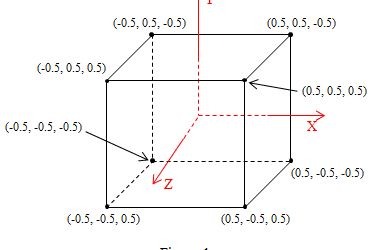


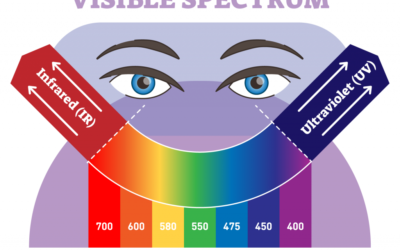




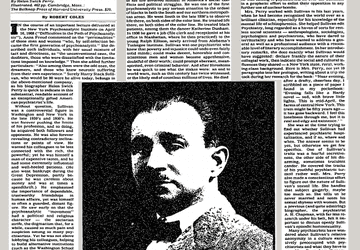


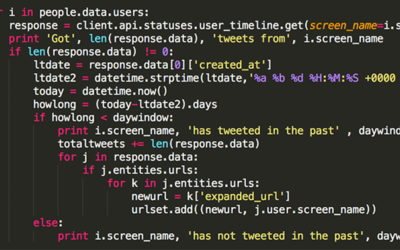



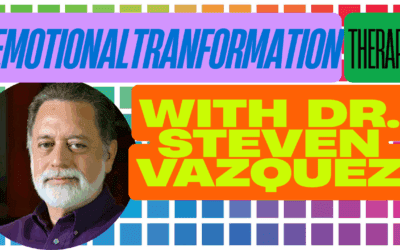
0 Comments